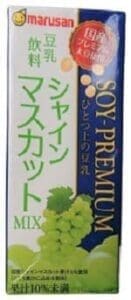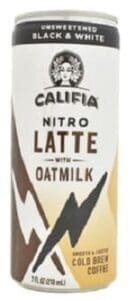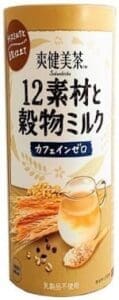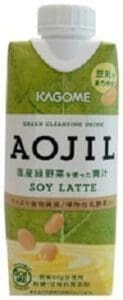-
Articles + –

The plant-based trend will continue to develop over in the next ten years under the influence of the two driving forces of health and environmental protection. Especially following COVID-19 outbreak, plant-based meat has become popular, which further supports this trend – consumers will focus on plant-based diets, but will also accept ethically produced meat, dairy, and other animal products.
Of course, consumer interest in consuming more delicious, nutritious, and convenient plants in their diets is unabated, creating new opportunities for food and beverage manufacturers, such as adding more fruits, vegetables, nuts, grains, seeds, spices, herbs, and plant ingredients in packaged foods and beverages.
However, despite plant-based dairy products’ high penetration in the Chinese market, there is still a lot of room for increases in consumption frequency compared with traditional dairy products. Mintel data about milk and dairy beverages shows that only less than one in five consumers said they consume plant-based protein beverages daily, while two in five consumers purchase milk or dairy products every day. The dairy industry is benefiting from Chinese consumers’ perception that dairy products contain high-quality protein and calcium. Although some plant-based protein drinks use fortification claims to compete with milk, so far, they have not been able to dominate the dairy market.
Two ways for plant-based dairy to seize the market
Several large companies, such as Nestle, Danone, and Pepsi, have launched oat milk, and brands like Daily Box, Ogilvy Planet, and Plant Label have stepped onto the plant protein track. However, Oatly, in particular, has been successful because of its focus on the oat milk foodservice segment, as well as its effective marketing, indicating brands focus on two aspects to drive success in the market.
- Develop plant ingredients in which consumers are interested. Mintel research on plant-based foods in China finds that the top three ingredients that generate the most interest are black bean (eg Doubendou), pistachio (eg Panpan plantag Aug 2021), and cashew (Hema X Weiguoqing Mar 2021). At the same time, more than half of consumers claim that they would like to try plant-based drinks with multiple plant protein sources. This said, mixed drinks with popular plant ingredients would be helpful for brands to capture market share.
- Aside from leveraging commonly used claims in the market–such as low-energy and high-fiber–brands need to highlight the protein level of their plant-based products. In fact, nearly half of consumers think a high level of protein content is the most important factor when choosing a plant-based drink.
Key consumer groups like plant-based dairy
According to Mintel research, only a quarter of respondents actually know if they are lactose intolerant or not. So it would be a relatively small market if plant-based drinks only target lactose-intolerant consumers. Thus the main consumer group, according to our observation, is those health-conscious people who are asking for natural products.
Mintel has observed that two-thirds of Chinese consumers have increased their frequency of healthy eating compared to before the COVID-19 outbreak. And more than two in five think that a healthy diet should contain both animal and plant protein. So the pandemic has encouraged health-conscious people to consume more plant-based drinks to complement their healthy diets.
On the other hand, our research also shows that, in general, consumers are considering plant-based drinks to be more natural than milk and dairy beverages. As a result, consumers who have a higher demand for natural products tend to prefer plant-based drinks.
Plant-based beverage innovation
As the market continues to embrace change, the plant-based trend from the West continues to present an opportunity for new category development upgrades in China. Here, we spotlight plant-based protein drinks from Mintel Global New Products Database (GNPD) to inspire your product innovation.
Crossover concept
Mixed Shine Muscat Flavored Soy Milk

This juicy soy drink is made with domestically produced, premium and GMO-free soybeans, which contain no lipoxygenases that cause an unpleasant smell, and less than 10% grape juice containing 5% muscat juice from shine muscat grown in Japan.
Califia Nitro Latte Cold Brew Coffee with Oatmilk

This is described as a smooth and frothy unsweetened black and white cold brew coffee. It is said to provide a clean energy boost with 100% Arabica cold brew coffee blended with velvety, smooth oat milk and frothed with nitrogen.
New flavor and nutrition
Sokenbicha Herbal Tea with Plant-based Milk

Free from caffeine and dairy, this tea is made with 12 botanical ingredients and plant-based milk including rice milk and soy milk.
Kagome Aojil Soy Latte

It is described as a cleansing green drink made using four types of domestically grown green vegetables, weighing 60g, plant-origin lactic acid bacteria and mild soy milk.
Create new occasions
From Dr. Hwang’s Soy Milk with Premium Black 9 Cereals

This product has been added to the range. It is made with 100% Korean soybeans, is said to help balance nutrients including vegetable protein and unsaturated fat, and has been formulated according to Dr. Hwang’s holistic health solution.
I’M Shake Grain Shake Powder

This product is made with barley, black beans and other grains powder and designed to help with weight control. It contains eight different types of vitamin, dietary fiber and roasted flax seeds, which provide a crunchy texture.
What we think
Mintel research shows that compared to milk and soymilk, other plant-based drinks (eg oat, almond, coconut) are perceived to have a lower level of protein, as well as high-quality protein. Therefore, instead of following Oatly’s foodservice-led marketing strategy, we suggest that brands focus on the retail segment and enhance the protein claims of products to be more competitive in the market.

Daisy is an Associate Director with the Mintel Food & Drink team, speciliasing in the China market. She monitors and reports on the latest innovation and trends impacting the Chinese food and drink market.
-
Research on product innovation in plant based drinks: 2021Discover the plant-based drinks market in China...View our reports store
-
Mintel LeapMintel Leap is a revolutionary new AI-powered platform that will transform your research process....Book a demo






































